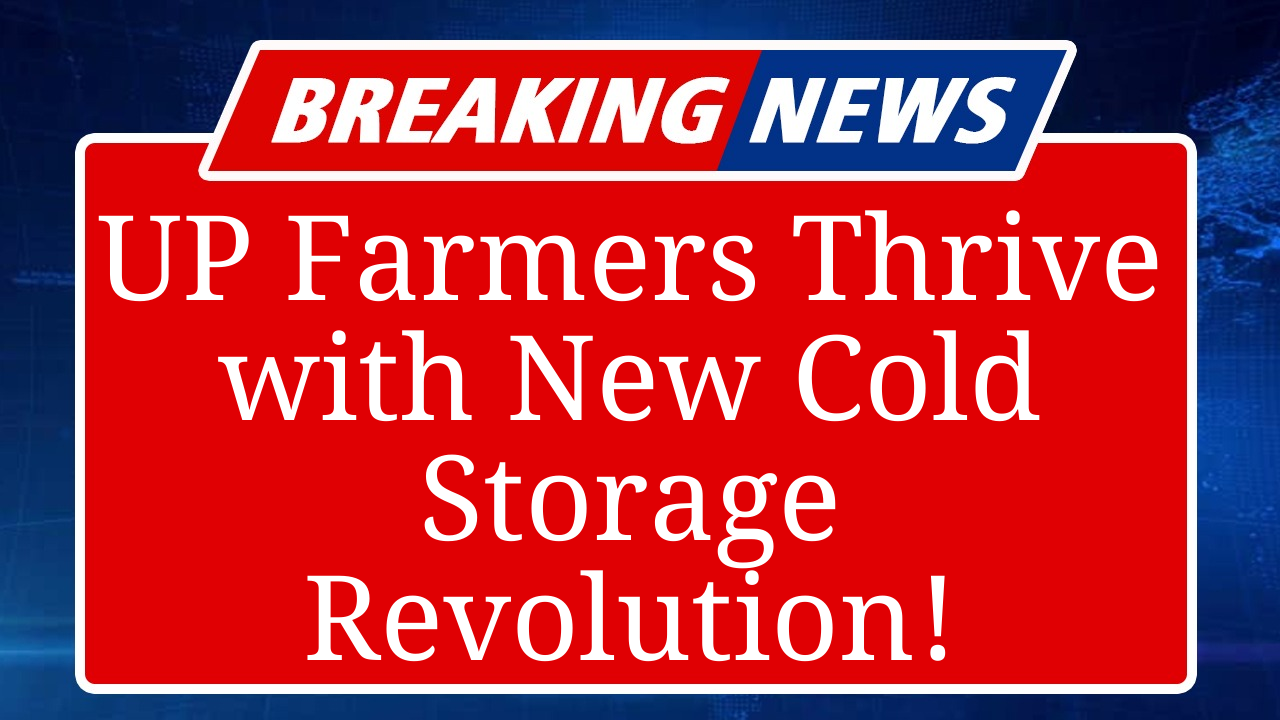Uttar Pradesh is revolutionizing agriculture with new cold storage units, reducing post-harvest losses and boosting farmer incomes. These facilities, supported by government subsidies, enable year-round produce availability, stabilize prices, and enhance food security. With advanced technologies like solar-powered systems, UP farmers can now store perishables efficiently, tap export markets, and diversify crops.
Uttar Pradesh Enhances Agricultural Infrastructure with Cold Storage Expansion
Uttar Pradesh, India’s agricultural powerhouse, is witnessing a transformative shift in its farming landscape with the establishment of new cold storage units designed to empower farmers. As of 2025, the state has prioritized reducing post-harvest losses, which account for nearly 40% of India’s fruit and vegetable production due to inadequate storage facilities. These new units, backed by government initiatives and private investments, are helping farmers preserve perishable crops, stabilize market prices, and increase their income.
The state government, in collaboration with the Ministry of Food Processing Industries, has rolled out schemes like the Pradhan Mantri Kisan Sampada Yojana, offering subsidies of up to 50% for setting up cold storage units in general areas and 75% in hilly and northeastern regions. In Uttar Pradesh, districts like Kanpur, Lucknow, and Varanasi have seen a surge in applications for these subsidies, with farmers and Farmer Producer Organizations (FPOs) setting up facilities ranging from 10-tonne to 10,000-tonne capacities. According to recent data, the state has added over 2.5 lakh metric tonnes of cold storage capacity in the last two years, bringing the total to approximately 40 lakh metric tonnes.
These modern cold storage units incorporate advanced technologies, such as solar-powered systems and smart monitoring tools, to ensure optimal temperature and humidity control. For instance, companies like Ecozen Solutions and Tan90, an IIT Madras-incubated startup, have introduced portable, solar-powered cold storage units in rural UP, enabling smallholder farmers to store crops like tomatoes, potatoes, and cauliflowers for up to six months. These units are particularly beneficial in areas with unreliable electricity, reducing dependency on diesel generators and cutting operational costs by up to 30%.
Farmers in UP are reaping significant benefits. For example, in Bokakhat, a pilot project with solar-powered cold storage units reported that 40 farmers increased their income by 30-40% by storing potatoes and avoiding distress sales. Similarly, in Kanpur, a cooperative of 150 smallholder farmers using a 20-tonne cold storage unit reported saving 1,200 liters of diesel in three months, reducing CO2 emissions by 15 tonnes annually. These facilities allow farmers to store produce during peak harvest seasons and sell when market prices are favorable, thus avoiding the price volatility that often plagues agricultural markets.
The impact extends beyond income. Cold storage units are enabling farmers to diversify into high-value, perishable crops like fruits, flowers, and dairy, which require precise temperature control. This diversification is opening export opportunities, as UP’s produce now meets international quality standards, thanks to improved storage and logistics. The state’s cold chain infrastructure is also aligning with India’s broader goal of reducing food waste, with the Indian cold storage market projected to reach USD 18,258.3 million by 2030, growing at a CAGR of 22.7% from 2025.
Despite these advancements, challenges remain. A 2024 report by the Development Intelligence Unit revealed that 69% of marginal farmers in India lack access to cold storage within a 10 km radius, and 10% are unaware of such facilities. In UP, awareness campaigns by the District Agriculture Department are addressing this gap, with field staff training farmers on storage techniques and maintenance. Additionally, innovations like ColdEasy by Temperate Technologies, a low-power solution consuming just four units of electricity daily, are gaining traction in UP, offering scalable and cost-effective storage for small farmers.
The state’s efforts are also supported by private players like Snowman Logistics, which has expanded its temperature-controlled warehousing in UP, and Inspira Farms, offering modular units tailored to rural needs. These developments are not only reducing food wastage but also contributing to environmental sustainability by lowering greenhouse gas emissions through energy-efficient systems.
Disclaimer: This article is based on recent news, reports, and data from sources like the Ministry of Food Processing Industries, NABARD, and industry publications such as The Financial Express and AgriTechTomorrow. Information is accurate as of September 2025 and subject to change.

